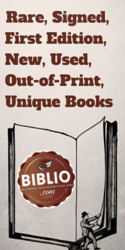Frederick Faust, Pulp Writer and Poet
His artist’s dream and ambition was to dwell in lyric glory among the poets serving Calliope and her sister Muses. But wanting to live with the poets, alas, never paid the rent.
In 1914 among his earliest writings was a group of 21 sonnets for The Occident at the University of California while a Berkeley undergraduate. That year he won a national poetry prize for his 2,400-word epic, One of Cleopatra’s Nights, published in a pamphlet and arguably his first book. Good luck finding a copy.
At the university he was a published poet and seemed on his way to distinction in verse, but, the gods of arts and letters had other plans, and instead of a home on Olympus, he found fortune and no small fame with gunslingers and other action fiction characters.
Frederick Schiller Faust — alias Max Brand, Evan Evans, George Challis, and eighteen other pennames — may have been the all-time productivity champ as a story-teller. He wrote over thirty million words before his quixotic death at 51 from a German bullet as a Harper’s war correspondent with the U.S. Fifth Army on the Italian front.
During World War One proving himself in action was frustrated despite a volunteer stint in the Canadian Army (he deserted when he failed to get overseas) and 1918 stateside service with the U.S. Army. World War Two delivered a second chance to confront “the bright face of danger.”
His writings were published, and still are, in some nine hundred stories including over two hundred books. Early in his career his main market was the pulps where he could let go without squandering time. Since all his income came from magazine, book, and movie sales, speed was a priority. Faust delivered in awesome volume. A ready squad of pseudonyms allowed him to publish several stories in single issues of pulp westerns and thrillers.
“Action, action, action is the thing. So long as you keep your hero jumping through fiery hoops on every page you’re all right. The basic formula I use is simple, good man turns bad, bad man turns good,” he noted. For westerns, he considered a great horse more important than a great heroine. It’s Silver we remember, not the Lone Ranger’s lady friends, if any.
In his last writing decades, without abandoning the pulps, Faust sold to the slicks or “hard paper” periodicals and saw his hard covers reach best-seller status. In 1938, his Max Brand western Singing Guns published by Dodd, Mead was among the year’s best sellers. Frank Luther Mott in Golden Multitudes called the book a favorite of tired business men and others “who never sat a horse or handled a gun except by proxy.” Mott described Faust as the king of the pulps, the creator of Dr. Kildare books and movies, and a superman with the Dictaphone “as diligent as a bee, as busy as a cranberry merchant, as industrious as a farmer in wheat-harvest.”
Faust’s phenomenal productivity from his first published western in 1919, The Untamed; his “word wizardry” even in dashed-off potboilers; and his storytelling panache might fuel speculation he had a writer’s pact along the lines of the dubious deal made by Goethe’s Faust. Yet the irony is that this exceptionally successful, big-money making story machine regularly dismissed as “brainless drip” and gibberish the popular yarns that sumptuously subsidized his family and his vices.
The western romances and pulps vibrant with action supported promiscuity and drinking, indulged his appetite for fine food and wine; and let him revel in a persistent bibliophile’s quest for expensively bound editions of Homer, Chaucer, Dante, Malory, or Shakespeare.
He was also a soft touch with friends, other writers, even editors (!) in need. His agent Carl Brandt reported that while publishing well over a million words a year, Faust persistently flirted with poverty to support lame ducks. He noted Faust’s instructions to send biweekly stipends to an unknown colleague “who really can write. If I had what he’s got, I’d not be the pulp paper hack I am. He’ll reach the stars.” The stars proved not to be that particular writer’s destination, yet Faust generously helped him anyway — and many others. An ailing associate editor who befriended Faust received the gift of thousands while he was an invalid.
So why did Faust value so little what he wrote with flood-like fury: Because the fiction he produced in volume wasn’t poetry worthy of the literature he yearned to emulate. A writing victim of economic necessity, he reflected Edmund Wilson’s insight that a writer working for pennies a word “cannot take the time for heavy research or fine writing.” The miracle of Faust is how fine much of the writing is. He demonstrates for readers willing to open their minds that writing fast doesn’t always have to mean writing bad, and that serving a popular market doesn’t necessarily result in twaddle.
Faust’s fiction readers are usually not allowed to share the rhymed couplets he often placed at the start of a serial and book chapters. Fussy editors chopped them out. His readers, though, often sense the presence of a poetic sensibility in lyrical asides normally alien to popular fiction, and readers are repeatedly made aware of his commitment to great literature.
In his first western tale, “Above the Law” (All-Story Weekly, August 31, 1918) his villain, the bandit Black Jim has the books of Scott, Shakespeare, Poe, Byron, Malory at his bunk. Poetic passages are found in practically every Faust story. These unexpected — and to action-addicts maybe unwelcome — interludes are Faust’s invitation to “walk a long distance into the minds of one another” as he states in Evan Evans’ Montana Rides! where his triumphant hero proclaims, “I feel as if I owned the whole green world.”
Action-only seekers in his books must be prepared for unexpected gushes of words such as “Mountains came lunging and springing on his eye like waves of a sea; their violence made a joyous mental uproar.”
In Destry Rides Again, the troubled protagonist ultimately realizes that all are equal, not “in speed of foot or in leap of mind, but equal in mystery, in the identity of the race which breathes through all men, out of the soil, and out of the heavens. So it was that hatred for his enemies left him.” Frequenters of such fiction aren’t commonly accustomed to being mildly nudged by such exceptional, considering the locale, philosophical notions.
Readers familiar with the Iliad, Odyssey, Le Morte d’Arthur, or Shakespeare, can’t miss the fact that the author’s pulp plots for saddle sagas, thrillers, mysteries, sports yarns, romances, frequently have disguised roots in literary antiquity.
Max Brand’s Hired Guns reworks the Iliad and garbs Achilles with spurs. Many of his gun-wielding heroes reflect legendary characters who could keep step with Ulysses and Lancelot, and his villains tend to be almost but not quite invincible Leviathans of power and greed. Where’s the merit of a hero who merely conquers a lesser creature than himself? But defeat a super villain — that’s something indeed!
Faust’s 1937 magazine thriller, Phantom Spy, earned praise from John Atkins in The British Spy Novel for predicting World War II and understanding “what was happening so much better than politicians who were immersed in the Chancelleries.” “It is a weird book and one feels the hack-author…could be a compound of Akkbar del Piombo, James Branch Cabell and T.F. Powys,” wrote Atkins. He argued it was like a dream that makes sense and praised Faust for his concern with language and ideas. We might guess Faust would have been little moved by such praise since being accepted as a poet was his true and abiding goal.
Faust was born in Seattle on May 29, 1892, the son of a lawyer who remained a stranger to success. Orphaned in his early teens, he worked on a relative’s ranch near Stockton, California. His passion as a youth was reading. Thomas Malory’s Le Morte d’Arthur became a special favorite. It supplied knightly legends that could easily be reborn in a fictional West. He attended High School in Modesto which he adapted as the troubled frontier town Wham in Destry Rides Again.
He called himself a “skinny Irishman with a German name” and acquired the permanent nickname Heinie. At the University of California, Berkeley, he launched the frenzied binge writing regimen that never let up. He delivered vast amounts of poetry and prose for campus publications and ghost wrote other student’s papers for pay. A literary friend at the university was later Pulitzer-winning playwright Sidney Howard.
Due to impulsive criticism of the university president, Faust was punished by not being allowed to graduate with his 1915 class. In retrospect it is hard to see how a degree could have accelerated this free-lancer’s dizzying pace as a prolific and productive word-slinger.
During his long career as a Grub Street hack and closet poet, Faust diligently used the early hours and to him best hours of each day for the slow generation of a few lines of poetry he could believe in and publish as Frederick Faust. The rest of the day reluctantly was given over to churning out twenty-five or more pages of publishable fiction attributed to Max Brand, et al. An exception was the period starting in 1938 when he was a well-paid screenwriter and “script doctor” in Hollywood. A few hours work for studio largesse sustained his lavish lifestyle and paid the family bills. “I like it because I can get all my work done in the morning and have the entire afternoon to write poetry,” he stated. Max Brand characters entertained movie audiences and gainfully employed a generation of actors in the 1930s-1940s Dr. Kildare series.
Without particularly caring about the West or bothering to learn details of its history and geography, Faust wrote westerns predominantly because the market was large and it was easy for him to meet its formulaic needs. In spite of his basic indifference to western reality, Faust’s skills in the genre made him a unique successor to Owen Wister and Zane Grey.
The achievement counted for little with the author who expressed fear in a 1939 letter that the “habit of doing pulp has corrupted whatever talents I have; I try to do verse slowly, like a child learning to walk.” He wrote about the “crazy delirium of joy” that was his sometimes when working on a new poem that pleased him: “Even God cannot feel more happiness than comes to me, at times.” Faust’s Berkeley professor and lifelong friend Leonard Bacon described him as “poetry incarnate” for whom “the writing of verse was a sacred art.”
Writing verse may be a sacred art, but the results are sometimes less than sacred. A close friend, Leonard Bacon’s daughter Martha, wondered if perhaps he wrote more for the Age of Pericles than for his own age. But he did not simply yearn to achieve recognition as a poet like the coffee house dilettante speculating endlessly about the masterpieces he would eventually get around to writing. Faust worked fiercely, published poems in periodicals, and proudly used his own name on two books of poetry that serious Faust collectors don’t find easily.
In 1922 Putnam made him a mainstream poet with The Village Street, containing seventeen poems. In 1931, Faust subsidized, through Basil Blackwell Press, a 17,200-word epic poem entitled Dionysus in Hades;“Among the ruins, I also breathed the past/And the sweet clover, I without a name/Where Dionysus sat, until at last/Sorrow, not for the Greeks, upon me came.” The poem related Dionysus’s search through the underworld for his lost mother Semele, with the goal of restoring her “to the beautiful and blind life on earth.”
Happy hunting through the upperworld for copies of either book. Copies do exist, of course, and are sometimes located. Manhattan bookman Walter Caron, proprietor of the historic Isaac Mendoza Book Company and shop until 1990, spoke in an interview about his persistent pursuit of books along New York’s Fourth Avenue Booksellers’ Row. Poetry was among Walter Caron’s collecting passions. “I used to go to Dauber & Pine where the old man, Sam Dauber, was a sweetheart. I found wonderful books in Dauber & Pine. They didn’t think much of poetry. Going through their shelves, all of a sudden there was Dionysus in Hades by Frederick Faust, and it was a signed copy! He was a western novelist who wrote two books of poetry.”
During 1916 as a young writer struggling for acceptance, Faust was a $2 per day stock handler in Wanamaker’s basement on Fourth Avenue at the heart of what slowly became Booksellers’ Row. Faust would have felt very much at home in that neighborhood of shops collectively exemplifying what he described as “a peculiar reverence for books.”
Faust collectors, numerous and ubiquitous, certainly have their work cut out. If complete collections, encompassing all first and special editions, is their goal, they confront a seemingly impossible challenge that would give the most tenacious book seeker pause. Of course, book collectors thrive on such quests and never really believe the “impossible” really is impossible.
A substantial Faust collection naturally includes the 1922 and 1931 poetry books as well as Dodd, Mead’s 1957 volume edited by his Berkeley classmate John Schoolcraft, Notebooks and Poems of Max Brand, with 16 Faust poems. Such a collection should also feature the eighteen Faust books (sixteen by Max Brand, two by Evan Evans, more than any other individual author) in Armed Services Edition paperbacks distributed by the millions free to soldiers and sailors during World War II. Most of the ASE Brands were shoot’-em-ups, appropriate for beachheads and battlefields. ASE k-5 was The Secret of Dr. Kildare from Faust’s best known non-western series.
We can safely assume that copies of Faust’s ASE paperbacks kept soldiers and sailors company when any safe escape from their perilous present was a welcome relief. We might even imagine that ASE westerns by various Faust pennames helped relax Dwight Eisenhower before and after D-Day and during other tense hours of World War II. His driver and friend Kay Summersby in Eisenhower Was My Boss noted that his “reading fare — indulged to excess” was paperback westerns. General Ike calmly defended himself against her pedantic protest that such books were beneath him. Westerns gave him a reprieve, he said, from “worrying about operations that will involve the lives of hundreds of thousands… That’s the idea of my westerns — when I read them I don’t have to think.” No one complained about his one vice after that, Summersby observed.
There is satisfaction in the thought that Frederick Faust served in a special way during World War II by giving officers and soldiers tales of the imagination in which, for a brief moment, they could escape the realities of the battlefield.
Today his poetry is little known while his escapist tales of action are widely enjoyed and collected. Martha Bacon remembered the Faust she knew in Florence where he lived in hope that the city of Dante might help his poetry. “Faust works furiously at the typewriter from early morning until late afternoon,” she wrote. “He is split by two necessities: what the public will read and what he longs to write. The split is an agony and he drinks to soothe it.”
Serious heart attacks and alcohol never stanched his flood of fiction. His fierce work discipline and voluminous output make the description he gave of his heroes as standing twenty feet tall seem personally apt. “There is a giant asleep in each of us, and when that giant wakes, miracles can happen,” he claimed.
His particular inner giant was clearly awake, and it’s time to honor that giant. It’s time to recognize Max Brand and that unique company of pseudonyms as Frederick Schiller Faust.
Roy Meador, a writer and book collector from Ann Arbor, Michigan, is the co-author, with Marvin Mondlin, of "Book Row," their history of the secondhand and antiquarian bookshops that once flourished on and near Fourth Avenue in Manhattan.


























